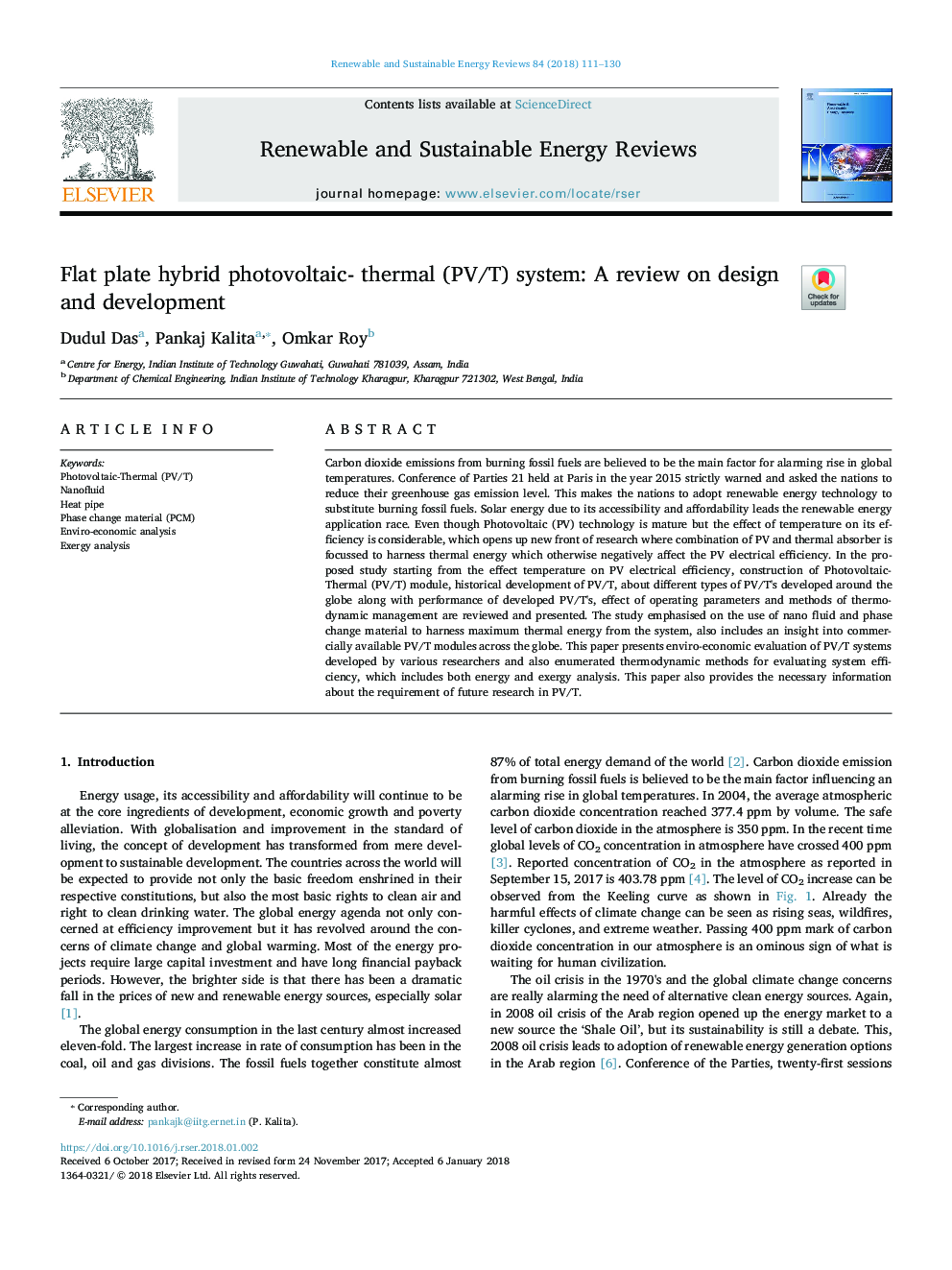| Article ID | Journal | Published Year | Pages | File Type |
|---|---|---|---|---|
| 8111624 | Renewable and Sustainable Energy Reviews | 2018 | 20 Pages |
Abstract
Carbon dioxide emissions from burning fossil fuels are believed to be the main factor for alarming rise in global temperatures. Conference of Parties 21 held at Paris in the year 2015 strictly warned and asked the nations to reduce their greenhouse gas emission level. This makes the nations to adopt renewable energy technology to substitute burning fossil fuels. Solar energy due to its accessibility and affordability leads the renewable energy application race. Even though Photovoltaic (PV) technology is mature but the effect of temperature on its efficiency is considerable, which opens up new front of research where combination of PV and thermal absorber is focussed to harness thermal energy which otherwise negatively affect the PV electrical efficiency. In the proposed study starting from the effect temperature on PV electrical efficiency, construction of Photovoltaic-Thermal (PV/T) module, historical development of PV/T, about different types of PV/T's developed around the globe along with performance of developed PV/T's, effect of operating parameters and methods of thermodynamic management are reviewed and presented. The study emphasised on the use of nano fluid and phase change material to harness maximum thermal energy from the system, also includes an insight into commercially available PV/T modules across the globe. This paper presents enviro-economic evaluation of PV/T systems developed by various researchers and also enumerated thermodynamic methods for evaluating system efficiency, which includes both energy and exergy analysis. This paper also provides the necessary information about the requirement of future research in PV/T.
Related Topics
Physical Sciences and Engineering
Energy
Renewable Energy, Sustainability and the Environment
Authors
Dudul Das, Pankaj Kalita, Omkar Roy,
